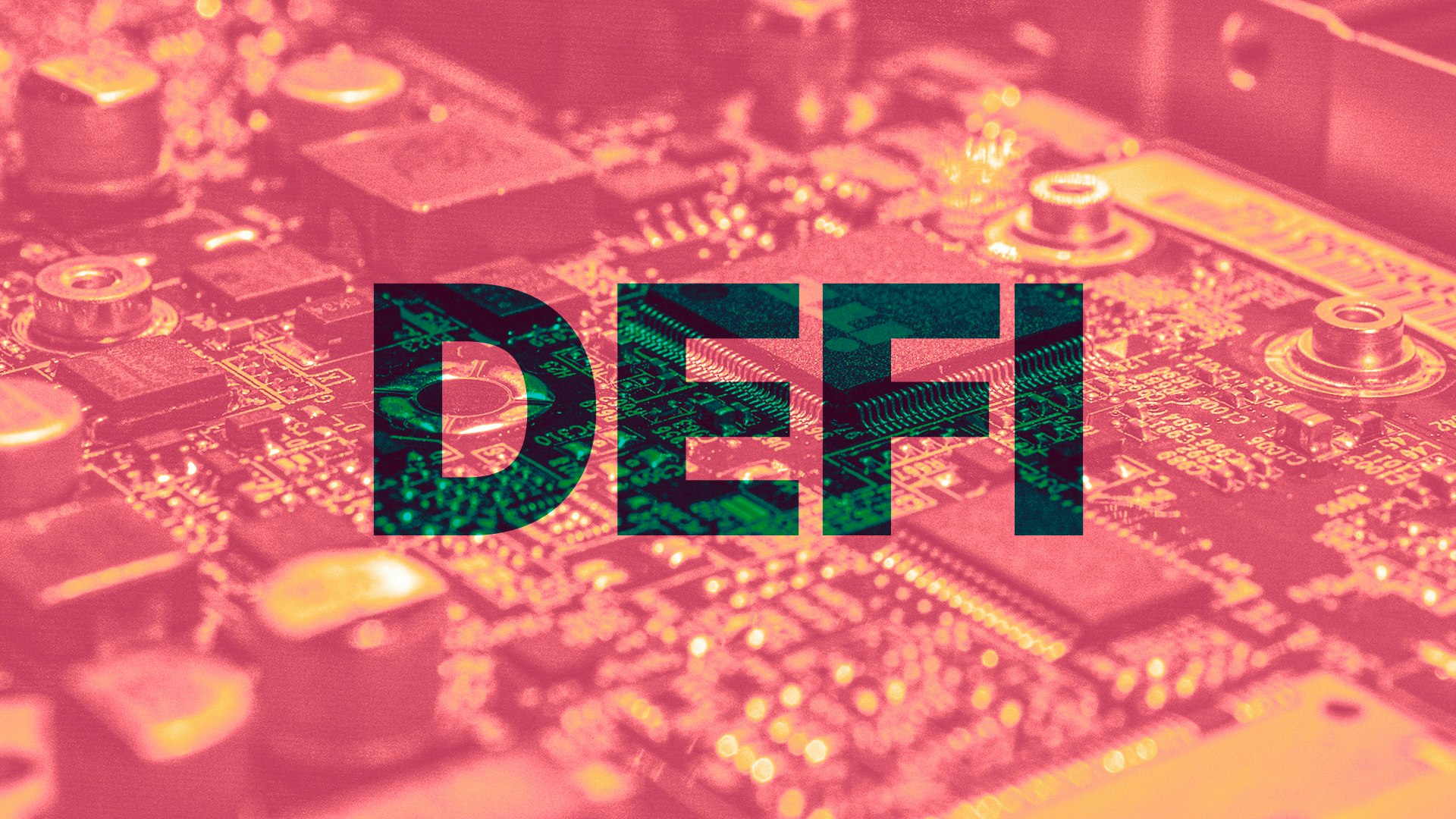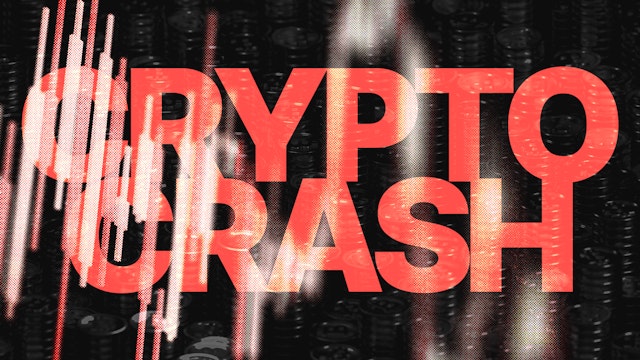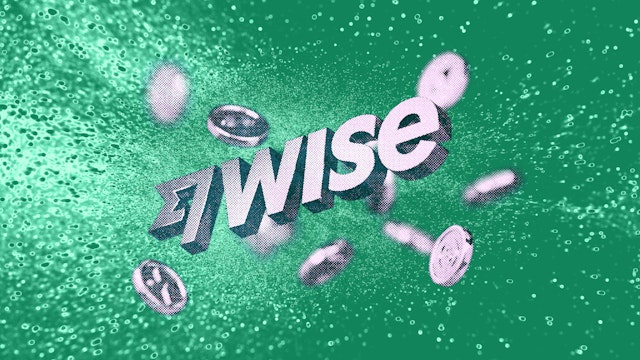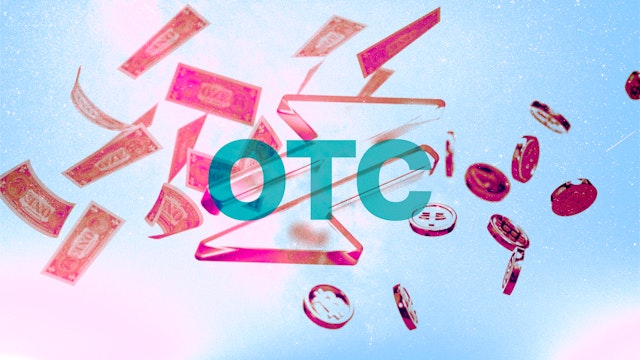What is DeFi? A Beginner’s Guide to Decentralised Finance
The complete guide to how blockchain technology is helping rebuild the global financial system without banks or brokers.
In this article...
- DeFi replaces traditional financial intermediaries like banks with self-executing code called smart contracts.
- Users keep full control of their assets and can access global services like lending and trading 24/7, without needing permission.
- While highly innovative and efficient, DeFi also carries unique risks around code security, scams and market volatility.

For centuries, the financial system has relied on gatekeepers. If you want a loan, to trade shares, or to send money overseas, you usually need a bank or a broker to approve the transaction and hold your funds.
These intermediaries provide trust and consumer protection. They also add fees, delays and paperwork, and can shut you out if you do not meet their requirements.
Decentralised Finance, or DeFi, offers a different approach. It builds financial services directly on public blockchains, effectively replacing the bank manager with code.
By removing many intermediaries, DeFi aims to create a system that is open to anyone, more transparent, and operating around the clock.
Defining Decentralised Finance
DeFi is a collection of financial applications that run on blockchain networks. Most activity still happens on Ethereum, although other chains like Solana, Arbitrum and Base are growing quickly.
In the traditional system, a centralised company, such as a bank, exchange or broker, acts as custodian of your money. You trust them to hold it, move it and give it back when you ask.
In DeFi, the system is usually non-custodial. You control your digital wallet and private keys at all times. No single company holds your assets and there is no support desk that can freeze or unblock your account.
You interact directly with the protocol to trade, lend, borrow or invest, typically using a Web3 wallet such as MetaMask or a supported exchange wallet.
How DeFi works
To understand DeFi, it helps to grasp the two core building blocks behind most applications: smart contracts and liquidity pools.
Smart contracts
Think of a smart contract like a digital vending machine that runs on a blockchain.
In a traditional deal, you may rely on a lawyer, banker or broker to make sure both sides do what they agreed to do. A smart contract automates that process.
It is a self-executing program, with the rules written directly into code. Once deployed to the blockchain, it follows those rules exactly.
For example, a smart contract might be programmed to say:
“If User A deposits 1 ETH, send them 2,000 USDC.”
The contract sits on the blockchain, waiting for someone to meet the conditions. Once User A deposits 1 ETH, the blockchain executes the trade automatically.
No manual approval is needed, and every step is recorded on a public ledger that anyone can verify.
Liquidity pools and AMMs
Centralised exchanges usually use an order book. Buyers and sellers place orders and the exchange matches them.
Many DeFi platforms use something different, called an Automated Market Maker (AMM).
Instead of trading against another person, you trade against a liquidity pool. This is a shared pool of tokens deposited by users.
These users are called Liquidity Providers (LPs). They supply their tokens to the pool and, in return, earn a share of the trading fees.
Because the pool is always available, the market can stay open and liquid 24/7, without a central authority manually matching trades or keeping custody of user funds.
Prices are set by a formula in the smart contract, based on the ratio of tokens in the pool, rather than by individual bids and offers.
Key characteristics of the DeFi ecosystem
DeFi introduces several concepts that differ sharply from traditional finance.
-
Permissionless:
Most DeFi protocols do not require credit checks or standard “Know Your Customer” (KYC) forms at the protocol level. Anyone with an internet connection, a supported wallet and some crypto can interact with the app. -
Transparent:
Every transaction and the code behind each smart contract are visible on the public blockchain. Anyone can inspect them using a block explorer and, in many cases, see the history of wallets and protocols in real time. This is very different from the closed ledgers used by traditional financial institutions. -
Composable:
DeFi protocols are often compared to “money legos”. One protocol can stack on top of another. For example, you might lend a token on one platform, receive a receipt token in return, then use that new token as collateral on a different DeFi app. This lets users build complex strategies using simple building blocks.
Real-life examples of DeFi in action
DeFi is no longer just theory. It now offers working alternatives to many familiar financial services.
Decentralised exchanges (DEXs)
Decentralised exchanges, or DEXs, let users swap tokens directly from their own wallets.
Platforms such as Uniswap or SushiSwap allow you to connect your wallet, select the tokens you want to swap, and approve the transaction. There is no sign-up form, no central account, and no need to deposit funds onto the exchange before you trade.
You stay in control of your assets until the moment the trade is executed on-chain.
Lending and borrowing
Lending protocols like Aave and Compound let users lend out their cryptocurrency to earn variable interest.
On the other side, users can borrow crypto against the assets they deposit.
Most DeFi lending is “over-collateralised”. That means you must deposit more value as collateral than you borrow.
For example, to borrow $5,000 worth of stablecoins, you might need to deposit $10,000 worth of Bitcoin as security. This extra buffer protects the protocol.
If the value of your Bitcoin falls too far, the protocol can automatically sell some, or all, of your collateral to repay the loan. This is called liquidation.
There are no phone calls from debt collectors. The process is handled entirely by smart contracts according to pre-set rules.
Liquid staking
Liquid staking services, such as Lido, help users stake their Ethereum or other proof of stake tokens to secure the network and earn staking rewards.
Normally, when you stake directly, your tokens are locked and cannot be used elsewhere for a period.
With liquid staking, you deposit your ETH, it gets staked, and you receive a derivative token in return, such as stETH. This token represents your staked amount plus rewards.
You can then use this derivative token across compatible DeFi apps, for example to provide liquidity or as collateral, while still earning staking returns in the background.
Risks and red flags
DeFi offers new opportunities, but it also introduces new risks. The technology is still experimental and often lacks the safety nets that exist in the regulated financial system.
Smart contract risk
DeFi protocols are governed by code, and code can have bugs.
If a smart contract contains an error, attackers may exploit it to drain funds or change the rules. Once a contract is deployed, it can be difficult or impossible to update without careful planning.
In Australia, there is no government-backed deposit insurance for your DeFi funds. If a protocol is hacked, there may be no way to recover your assets.
Audits by reputable security firms can reduce risk, but they do not guarantee safety.
Rug pulls and scams
Because DeFi is permissionless, anyone can create a new token or protocol and list it on a DEX.
In a “rug pull”, malicious developers launch a project, promise high returns, attract deposits, then withdraw the liquidity or mint themselves huge amounts of tokens and walk away.
Red flags can include anonymous teams, unaudited code, guaranteed returns, or tokenomics that give the developers extreme control over supply.
Once the funds are gone, it is usually very difficult to track or recover them.
User error and complexity
In DeFi, you are often your own bank. That brings freedom, but also responsibility.
Managing private keys and seed phrases has a steep learning curve. If you lose your seed phrase, forget your password, or sign a malicious transaction, there is usually no “forgot password” link.
Sending funds to the wrong address is also irreversible. There is no support team that can reverse a blockchain transaction.
On top of this, many DeFi strategies are complex and rely on technical terms or layered protocols. If you do not fully understand how something works, it can be easy to take on more risk than you realise.
The future of DeFi
DeFi is maturing quickly. The line between traditional finance (often called TradFi) and DeFi is becoming less clear.
Major financial institutions are testing or adopting blockchain-based systems for settlements, custody and trading. Some are exploring regulated versions of DeFi protocols.
Real-World Assets (RWAs), such as tokenised government bonds, cash deposits and real estate, are beginning to appear on-chain. This could eventually let investors access products that were once limited to large institutions or specific jurisdictions.
Keep in mind that the ATO treats DeFi activities (e.g., staking rewards, liquidity provision, yields) as taxable (CGT or income).
While the early years of DeFi were dominated by speculation and short-term yield farming, the next phase appears more focused on practical efficiency. That includes lower costs, faster settlement, and wider access to simple, transparent products.
For Australian users, this may mean more choice in how you save, invest and transfer value across borders, although regulation and consumer protections will continue to shape what is available locally.

Suggested Articles

Why is Crypto Crashing? Explaining the Crypto Bloodbath
Why is crypto crashing today? Here is the explanation of some of the blow-up.Read more
How to Use Wise to Withdraw Fiat from CoinJar
A simple way to move funds from your CoinJar account to your Wise multi-currency account.Read more
What is OTC in Crypto? What is Over-The-Counter Used For?
What is an OTC desk? We explain why someone might want to use an over-the-counter desk for their crypto trades.Read moreBrowse by topic
Disclaimer: This article is for informational purposes only and does not constitute financial or investment advice. Cryptocurrencies, including Bitcoin, are highly volatile and speculative assets, and there is always a risk that they could become worthless.
Readers should conduct their own research and consult with a qualified financial advisor before making any investment decisions.
CoinJar does not endorse the content of, and cannot guarantee or verify the safety of any third party websites. Visit these websites at your own risk.
Your information is handled in accordance with CoinJar’s Collection Statement.
CoinJar’s digital currency exchange services are operated by CoinJar Australia Pty Ltd ACN 648 570 807, a registered digital currency exchange provider with AUSTRAC.
CoinJar Card is a prepaid Mastercard issued by EML Payment Solutions Limited ABN 30 131 436 532 AFSL 404131 pursuant to license by Mastercard. CoinJar Australia Pty Ltd is an authorised representative of EML Payment Solutions Limited (AR No 1290193). We recommend you consider the Product Disclosure Statement and Target Market Determination before making any decision to acquire the product. Mastercard and the circles design are registered trademarks of Mastercard International Incorporated.
Google Pay is a trademark of Google LLC. Apple Pay is a trademark of Apple Inc.
This site is protected by reCAPTCHA and the Google Privacy Policy and Terms of Service apply.

